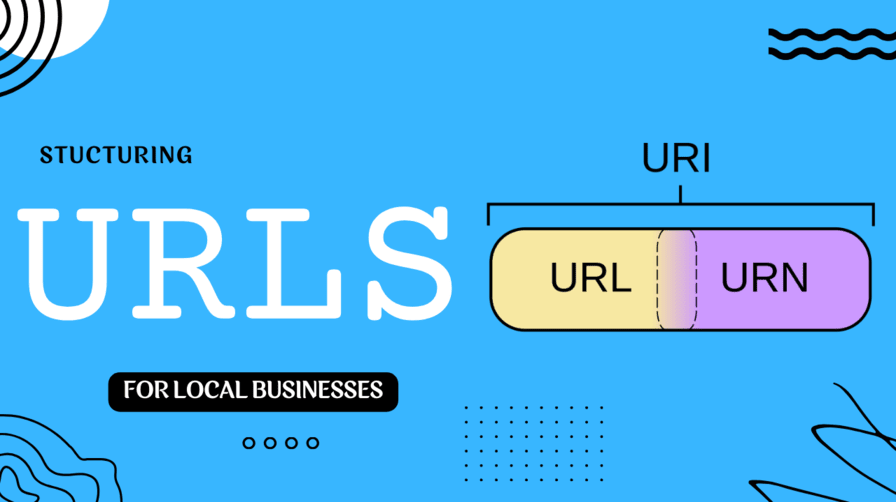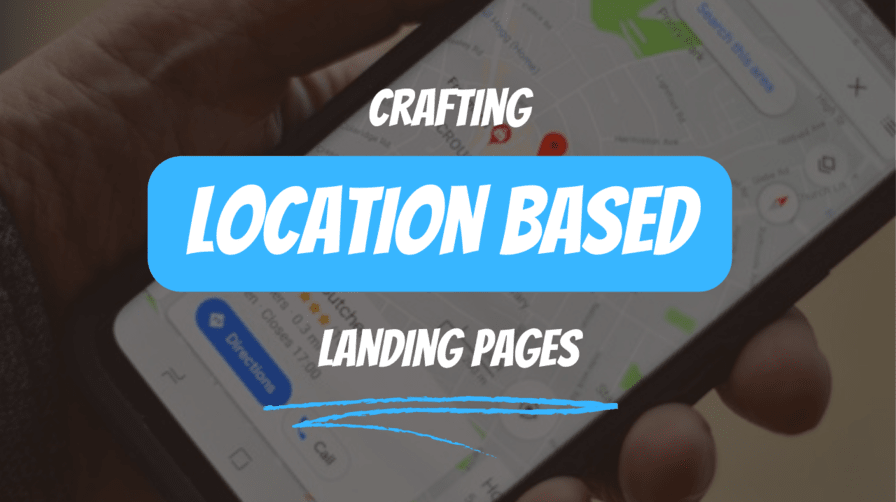How to Optimize URLs for SEO
How to Optimise URLs for SEO As a local SEO’er, I have worked with many local businesses in the UK and elsewhere, helping them achieve success through effective local digital marketing strategies. One thing that often gets overlooked is the importance of learning how to optimize your URLs. In this article, I will cover the best practices and strategies for optimising URL structures to improve online visibility and attract targeted traffic. Key Takeaways Well-structured URLs play a crucial role in local SEO and can improve your online visibility. Optimizing local business URLs involves incorporating relevant keywords, keeping URLs concise and descriptive, using hyphens to separate words, and avoiding unnecessary parameters. Geographic targeting is essential for local businesses, and incorporating town or county names, neighborhoods, and other geographical indicators into URLs can help attract local customers. Monitoring and analysing URL performance is essential to making necessary adjustments and improving your online presence. By following the best practices and strategies outlined in this article, local businesses can improve their online visibility and drive growth and success online. Importance of Local Business URL Structure In the world of local SEO, a well-structured URL can make all the difference. Your website’s URL provides search engines and users with vital information about your business, including what your page is about and where it’s located. A clear and concise URL can improve the visibility of your website and landing pages and make it stand out in the crowded online marketplace. An optimised URL should accurately describe your web pages so that both users and search engines know what they can expect to find on your site. Failure to do so can result in decreased click-through rates and lower visibility online. When designing your URL structure, be sure to keep it simple and descriptive. Including relevant keywords and geographic locators in your URLs helps to establish your business’s online presence and drive targeted traffic to your local website. By optimising your URL structure, you can create a strong foundation for your local online marketing efforts, leading to increased leads and sales for your business. How to Optimise URLs for Local Business As a local business in the UK, optimising your meta and URL structure is crucial to attracting targeted traffic and improving your online visibility. By following these best practices ive laid out below, you can ensure that your URLs are effective: Incorporate relevant keywords: Use location-based keywords and industry-specific terms in your URLs to increase relevance and visibility. Keep URLs concise and descriptive: Avoid long, complex URLs that are difficult for users and search engines to understand. Instead, use short, descriptive URLs that accurately represent the content of your pages. Use hyphens to separate words: Hyphens are recommended over underscores or other characters for separating words in your URLs. Avoid unnecessary parameters: Remove unnecessary parameters from your URLs, as they can lead to duplicate content issues and make it harder for search engines to crawl your site effectively. By doing so, i can assure you that your website URLs will be optimised for SEO and provide the best possible user experience for your customers. Optimising URLs for Geographic Targeting When it comes to local SEO, its also important to optimise URLs for specific geographic locations. Adding geographic indicators such as town names, neighborhoods, and landmarks in URLs can help local businesses attract customers in their target area. The key to effective URL structuring for geographic targeting is to keep URLs concise, descriptive, and relevant to the business and its location. For instance, a local cafe in Manchester can create a URL such as www.examplecafe.co.uk/manchester-coffee-shop to help search engines and users understand the cafe’s location and offerings. Why Geographic Targeting Matters Using geographic targeting in URLs is crucial for local businesses because it helps them attract customers who are looking for local products or services. When users search for a particular product or service, search engines show results based on the user’s location. By using geographic indicators in their URLs, local businesses can increase their chances of appearing in relevant search results. Best Practices for Geographic Targeting in URLs Here are some best practices for local businesses to follow when structuring URLs for geographic targeting: Include the location in the URL without using abbreviations or acronyms Use hyphens to separate words in the URL Avoid using unnecessary words or characters in the URL Examples of Effective URLs for Geographic Targeting Let me show you some examples of effective URLs for local businesses targeting specific geographic locations: Business Location Effective URL The Flower Shop London www.exampleflowershop.co.uk/london-florist The Hair Salon Manchester www.examplehairsalon.co.uk/manchester-salon The Bookstore Edinburgh www.examplebookstore.co.uk/edinburgh-bookshop By following the best practices for URL structuring and using geographic indicators, local businesses can improve their online visibility and attract more targeted traffic to their website. Incorporating Local Keywords in Your URL Structure As i have already demonstrated, local keywords are essential in attracting targeted traffic to your local business website. But how can you incorporate these keywords into your URL structure effectively? First, it’s important to identify the right location-based keywords and industry-specific terms that your target audience is likely to use when searching for businesses like yours online. For example, if you are a hair salon in London, using local keywords such as “hair salon in London” or “hairdresser in central London” can help improve your website’s visibility among local search results. Once you have identified your keywords, it’s time to use them into your URL structure. Follow these best practices: Include your target keywords in the URL, but avoid keyword stuffing. Use only relevant and concise keywords. Use hyphens to separate words in the URL instead of underscores or spaces. Make your URLs as short and descriptive as possible, so that they are easy to read and remember. If you have multiple locations, create unique URLs for each one to improve your local visibility and provide more relevant information to potential customers. By following these tips, you can be sure that your website’s URL structure is optimised for

